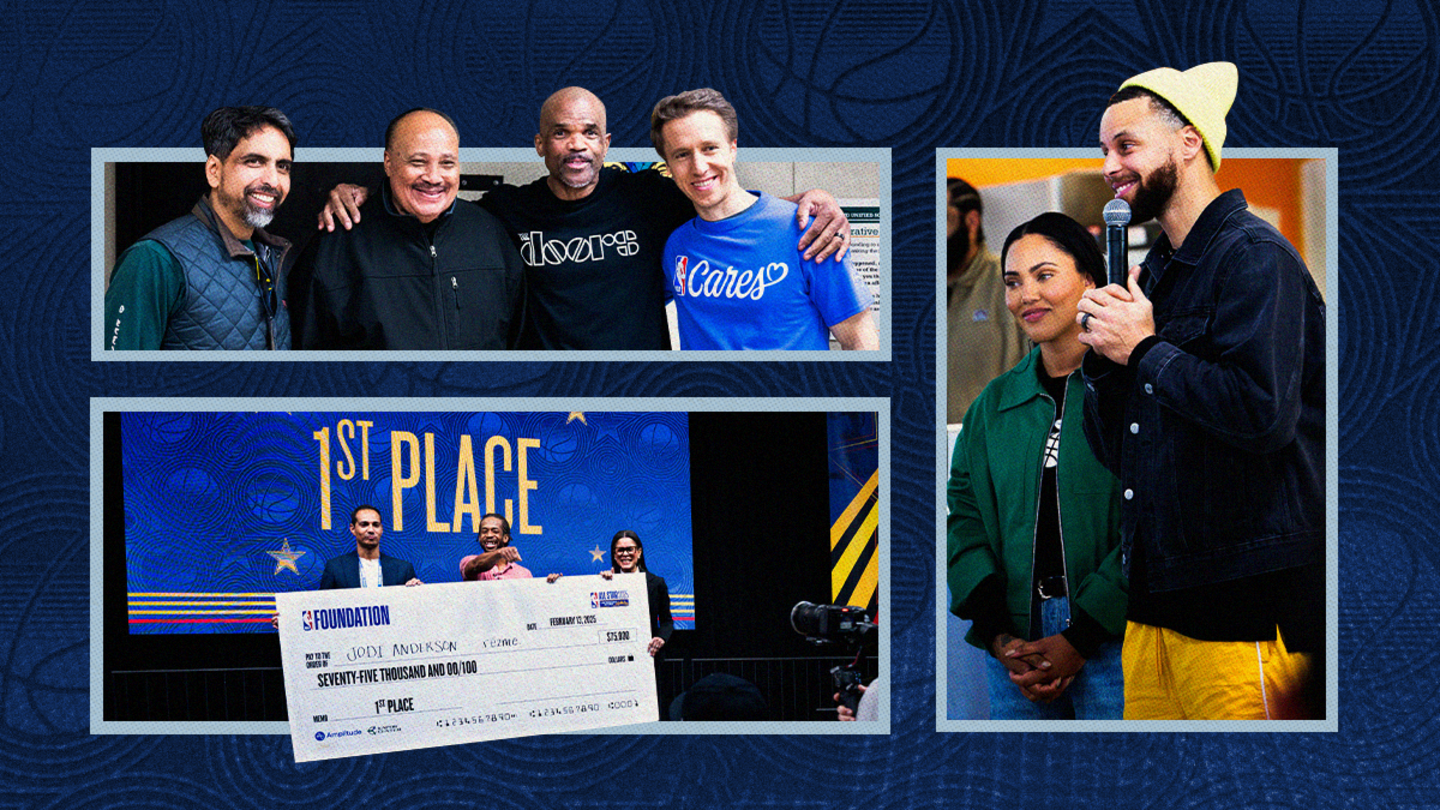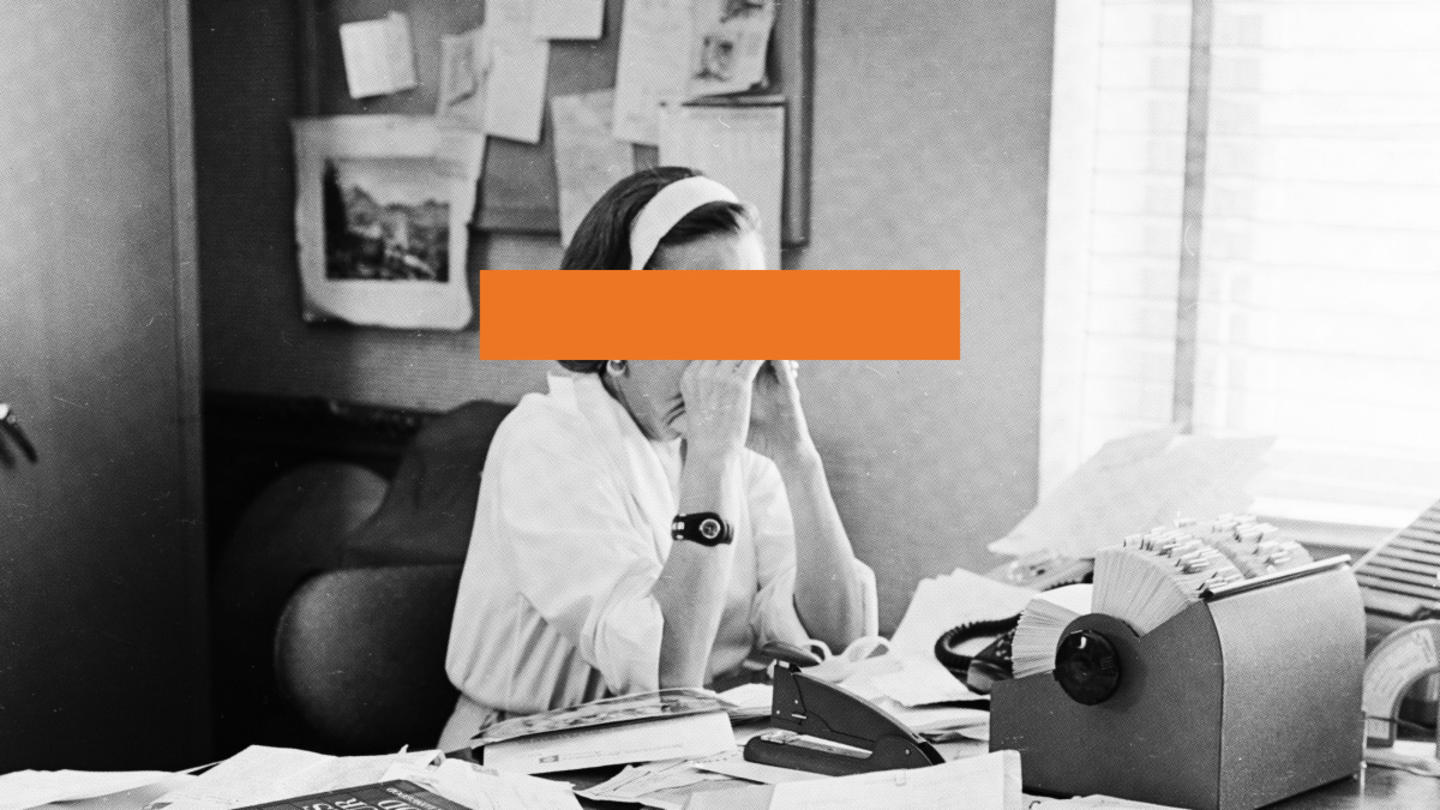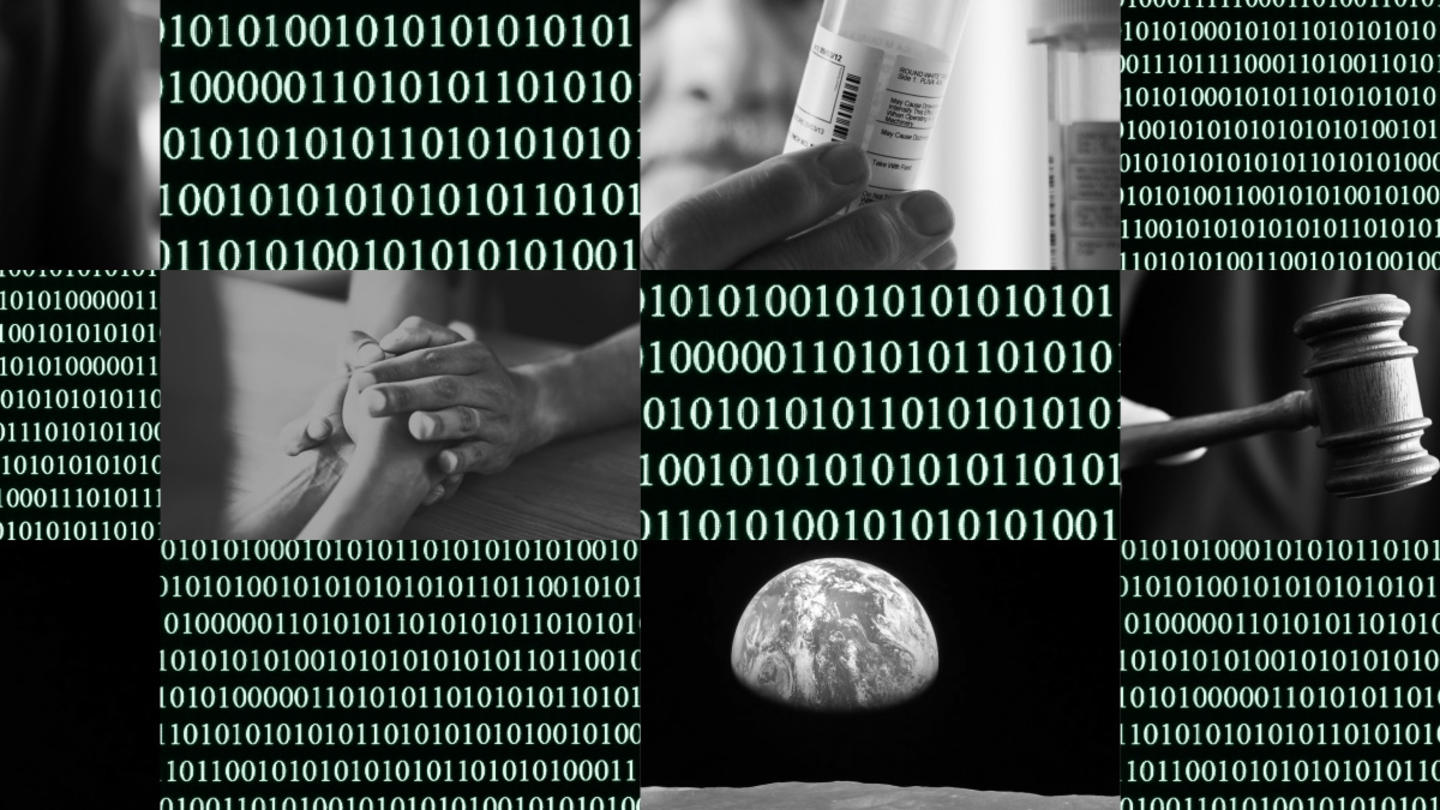Technophobia, or fear of technology, was once labeled the phobia of the ’90s, but it’s making a comeback in the 2020s — particularly as artificial intelligence technology and adoption become mainstream.
With it comes increasing concerns about job loss, data privacy, and misuse, similar to the anxieties of the early internet era.
Can you imagine a world without the internet? While it introduced some negative aspects, the internet has significantly improved how we address social issues, work together, and meet individual needs.
AI holds the potential to transform our world once again. While many argue or focus on the potential drawbacks we’ll need to mitigate along the way, others are focused on its immense potential to be leveraged for social change.
We explored this issue with three forward-thinking startups to discover how founders are harnessing AI to improve access for the 160 million Americans in areas facing mental health shortages, prevent wrongful incarceration, and gamify mental wellness for the loneliest generation yet.
Does AI have the power to dismantle barriers that once seemed insurmountable?
AI as a catalyst for democratizing mental health care
For Daniel and Steve Lee, the story of why they founded a mental wellness app is deeply personal.
When they were young boys, the brothers felt helpless as they watched their mother suffer through debilitating depression. Their father had abandoned the family, and without affordable care, their mother struggled for three years.
With this painful experience, the Lee brothers experienced a version of what many Americans face every day. Research from 2023 found that 160 million Americans live in areas with mental health care shortages. Meanwhile, a 2024 study revealed millions of adults and youth continue to have inadequate insurance coverage for mental health and substance use treatment.
Steve and Daniel Lee wanted to create a solution that would bring mental wellness to millions, removing barriers like the ones their mother faced on a massive scale.
Their company, Aura Health, is often called the “Spotify of wellness apps” — and it offers a solution that’s both scalable and personal. It leverages AI to understand each user through survey responses, mood tracking, and interactions with the platform. It then delivers bespoke wellness resources in real time.
A user experiencing stress at work can turn to the app, describe what they are feeling, and receive tailored recommendations from a vast content library featuring mental health experts and wellness gurus worldwide. These recommendations include guided meditations, breathing exercises, mindfulness routines, cognitive behavioral therapy, or reminders to spend time in nature.
For those seeking more direct support, Aura serves as a marketplace where users can connect with therapists, sleep experts, coaches, and a variety of wellness providers.
While not a replacement for traditional therapy, Aura turns mental wellness into a daily practice, available to anyone, whether they have access to traditional therapy or not. It’s proving effective, with the app’s community growing to 8 million members and achieving a 98% satisfaction rate.
“I believe there’s really no limit to what we can do to provide people who need it help with their mental well-being,” Steve Lee told Forbes. “We want to be that primary destination for anyone who feels alone.”
Aura Health is developing a new product that leverages AI to automatically detect people’s emotions and deliver proactive coaching and guidance.
How AI is addressing inequities in the criminal justice system
AI is also emerging as a transformative force in fields weighed down by inefficiency and significant resource shortages.
Consider how JusticeText is using AI to disrupt the criminal justice system.
How much time do public defenders have to review each client’s case? Two or three days? A week? Try seven minutes.
That’s the average amount of time some public defenders can devote to any one case due to overwhelming caseloads and severe underfunding.
In stark contrast, prosecutors and law enforcement agencies often operate with significantly larger teams and resources, creating an imbalance that directly impacts low-income defendants. This not only leads to inadequate legal representation but also perpetuates a cycle where individuals unable to afford private attorneys face longer jail times or wrongful convictions.
JusticeText, an AI-powered platform co-founded by Devshi Mehrotra and Leslie Jones-Dove, is designed to help level the playing field for defendants and their public attorneys. By harnessing AI to transcribe and analyze critical audio and video evidence, JusticeText enables public defenders to pinpoint the critical moments — like Miranda warnings and arrest details — that are essential to their clients’ cases.
Sign up for the Stand Together newsletter and get stories, ideas, and advice from changemakers to help you tackle America’s biggest problems.
The platform does more than just reduce public defenders’ burden of overwhelming caseloads. It holds the justice system accountable by empowering public defenders to uncover discrepancies between police reports and video evidence.
“Until we had this sort of technology, we had to rely on the truth of the offense report. And now we’re seeing that the offense report and the truth may not necessarily line up,” said Jacquelyn Carpenter, a public defender in Harris County, Texas. “Like an arson case that I had. That case got dismissed outright, but it was because of what was on the body cam.”
Thousands of public defenders across the country are already using the technology.
Mehrotra and Jones-Dove are determined to ensure that more individuals receive a fair defense and the due process they deserve.
“We want to be part of what redefining public safety means in America and the role that public defenders play in holding our criminal legal system accountable,” says Mehrotra.
Using gamification and AI to address Gen Z’s mental health challenges
Amy Wu is tackling Gen Z’s mental health crisis in a way that would be impossible without AI.
As a teenager and young adult, Wu seemed to be on the perfect path — she was accepted into an elite university, secured prestigious internships, and launched her career in Silicon Valley right after graduation.
Smooth sailing, right? Not quite.
Along with those impressive achievements, Wu faced a series of “firsts” that took a toll on her mental health: her first major friend conflict, the end of her first relationship, and her first stressful job. These led to bouts of anxiety and self-doubt that she didn’t know how to handle.
“I realized during that time that I had no emotional toolkit to deal with these things,” she said.
She looked around and discovered she wasn’t the only one facing these emotional challenges — her friends were experiencing the same struggles. Research shows that 73% of Gen Zers report feeling lonely, 50% battle daily anxiety, and many are scoring lower on emotional intelligence surveys compared to five years ago.
“I was watching so many of my friends go through a similar journey of their first big relationships, big moves, career changes — these decisions that feel absolutely gut-wrenching when you’re going through them,” she said. “And all of them feeling like they just didn’t know how to deal with these questions, either.”
Wu spent years on a personal quest to build her own emotional toolkit, navigating a path of trial and error. From meditation and journaling to therapy, she explored every option she could find — but each solution required her to seek it out on her own. There was no central resource or foundational guide to help her through her journey of self-discovery.
So she created Manifest, an AI-powered app to help Gen Zers build daily mental health habits through gamification. Her goal is to make wellness feel accessible and engaging by offering fun, bite-sized practices that turn the ongoing journey of mental health into manageable challenges.
If the Gen Z user is the hero of their story, Manifest is the mentor in their pocket. Users share their emotional challenges by talking with the AI coach, which guides them through personalized questions to help them better understand their feelings and situations.
Through user feedback and her own experience, Wu identified relationships as the top concern for Gen Z, so Manifest focuses heavily on relationship mindfulness. In addition to daily practices, “vibe checks,” and affirmations, it offers a range of challenges — starting small, like a “4-Day Challenge to Heal from Heartbreak,” and extending to longer, more in-depth programs like a 28-day challenge.
“We don’t promise you’ll solve all your problems in eight days,” Wu said, referring to an eight-day challenge. “But can we get you to commit to thinking about it for eight days, processing it, and moving through some of those emotions?”
It’s the toolkit she wishes she’d had growing up, and now she’s determined to provide it to others in her generation.
“For every person that is experiencing these big life changes that they feel like they have no ability to handle, can we be that toolkit for them?” she said. “Not only just be the toolkit, but be a really delightful toolkit for them, and deliver them joy through that?”
Aura Health, JusticeText, and Manifest are supported by Stand Together Ventures Lab, which invests in and supports founders and their early-stage start-ups that are challenging the status quo.
Learn more about Stand Together’s top issue areas and explore ways you can partner with us.

Eleven photos show how NBA stars and leaders transformed a school and inspired seven Bay Area entrepreneurs.

You don’t have to be a pro athlete to put their lessons to work in your own community.

Watch these professional football players highlight what matters most to them off the field.

Sometimes stepping down is the best way to help your organization thrive. Here's why.
